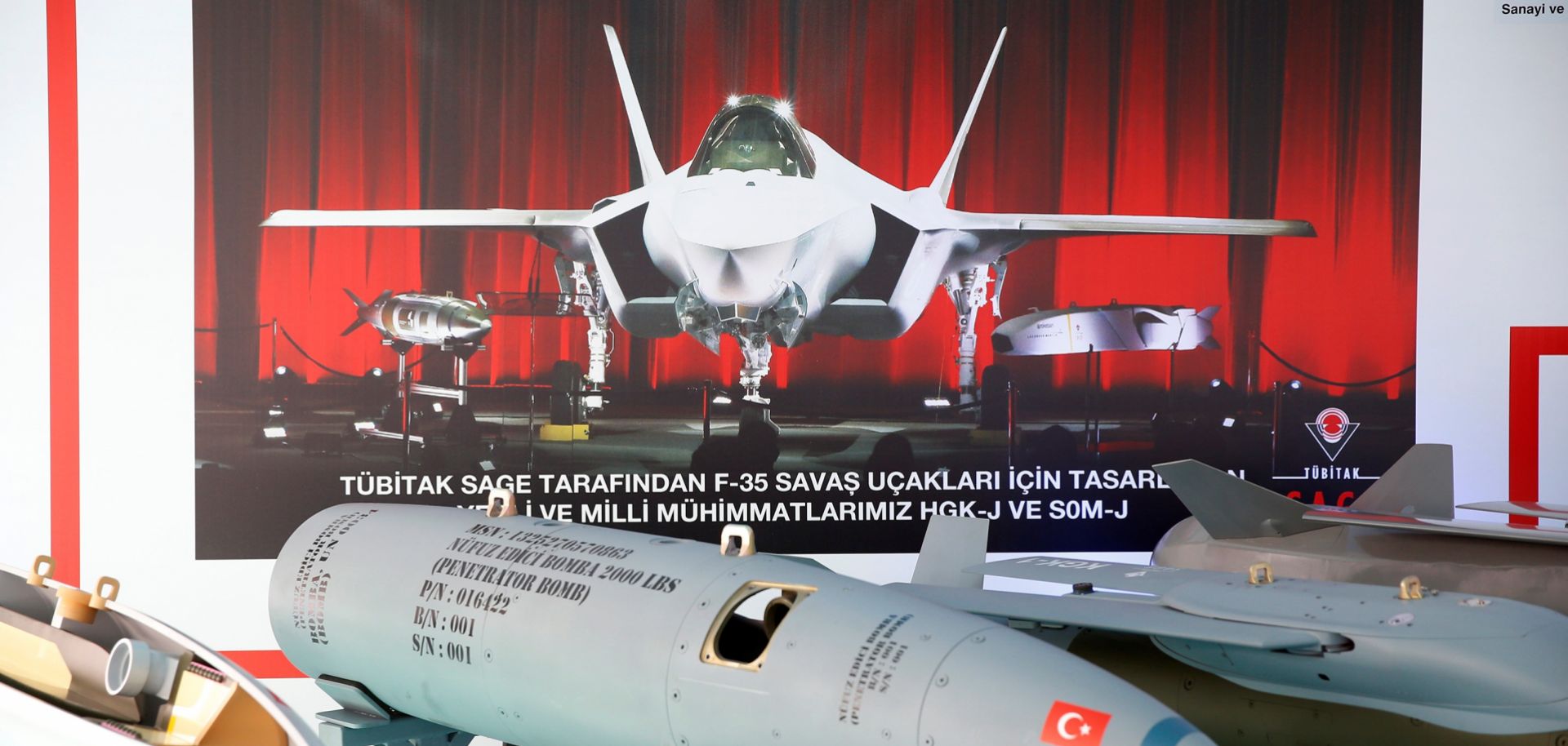COLUMNS
U.S. Nuclear Weapons Sharing Coming Under Increased European Scrutiny

Jun 27, 2019 | 05:30 GMT

Turkish weapons designed for the U.S.-built F-35 fighter jet on display in Ankara in 2018. The Turkish role in the U.S. nuclear sharing program is particularly fragile because of its plans to acquire S-400 air defense systems from Russia.
(MURAT KAYNAK/Anadolu Agency/Getty Images)
Highlights
- As a result of increasing strategic arms competition between the United States and Russia, European allies that host elements of the U.S. nuclear deterrent have rekindled the debate about overseas nuclear basing.
- While so-called nuclear sharing isn't under immediate threat right now, there is significant uncertainty surrounding its long-term future.
- The Turkish role in U.S. nuclear arms sharing is particularly fragile because of the deteriorating ties between Washington and Ankara, and the standoff over the acquisition of Russian S-400 air defense systems versus the U.S. F-35 fighter aircraft.
Subscribe Now
SubscribeAlready have an account?
